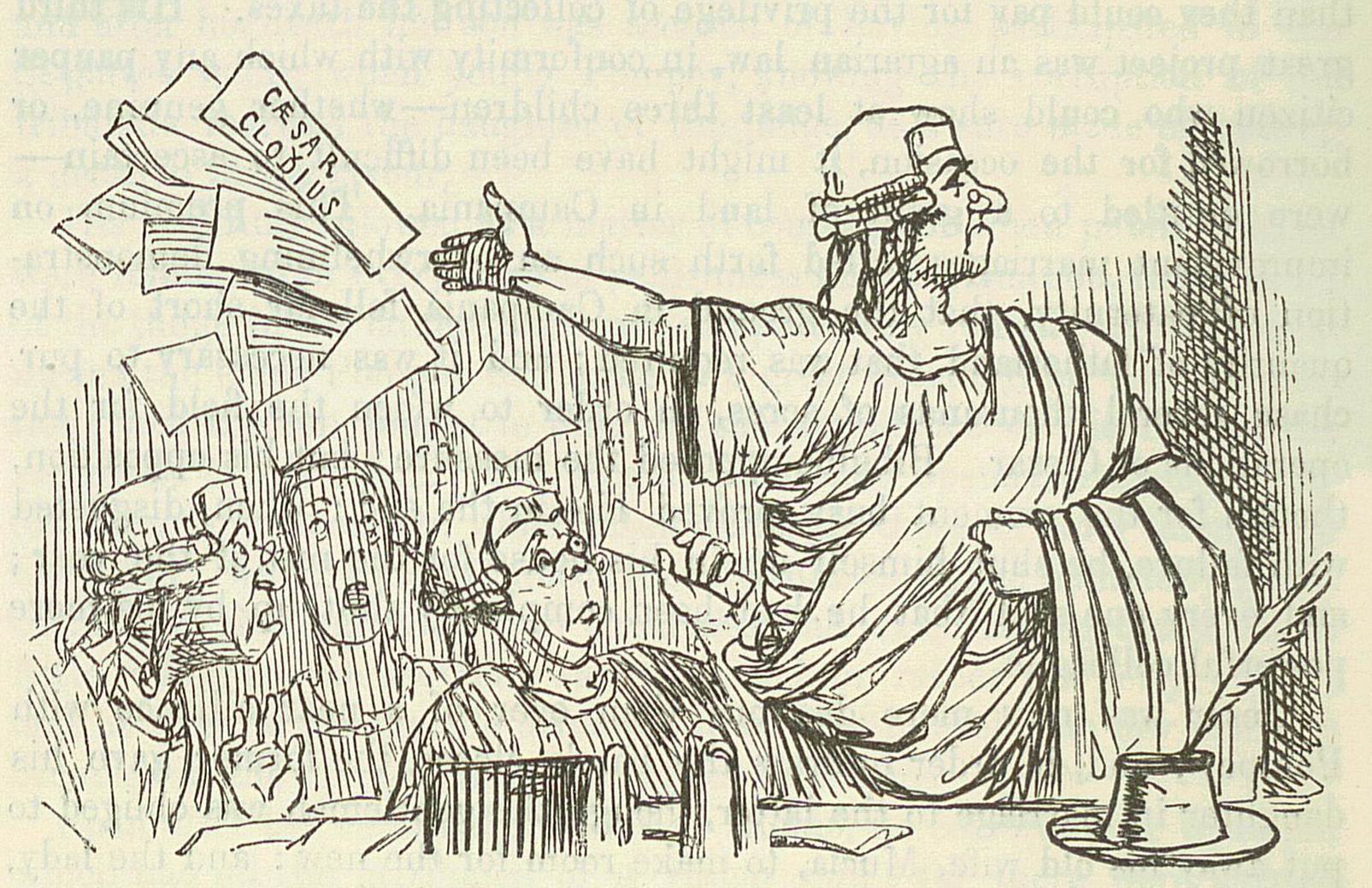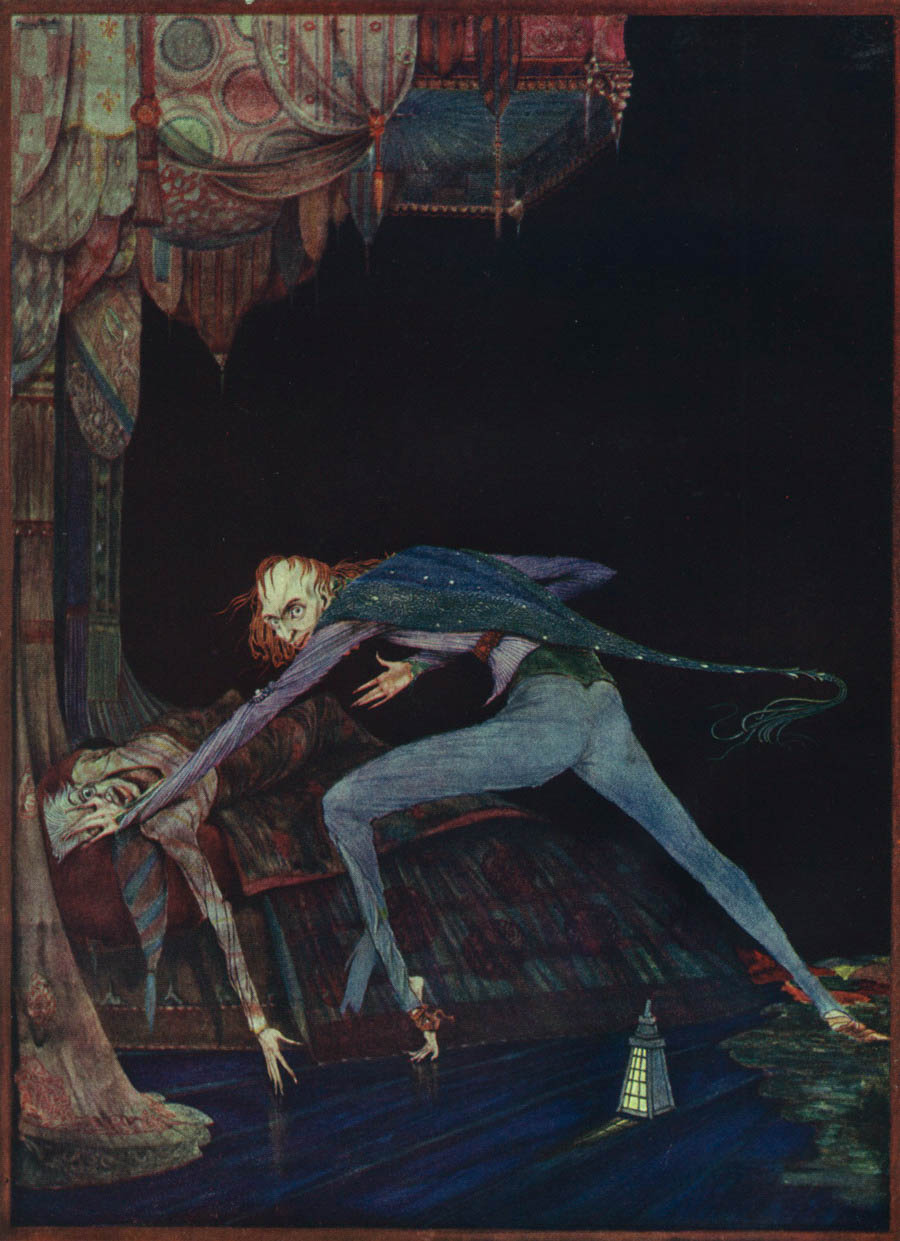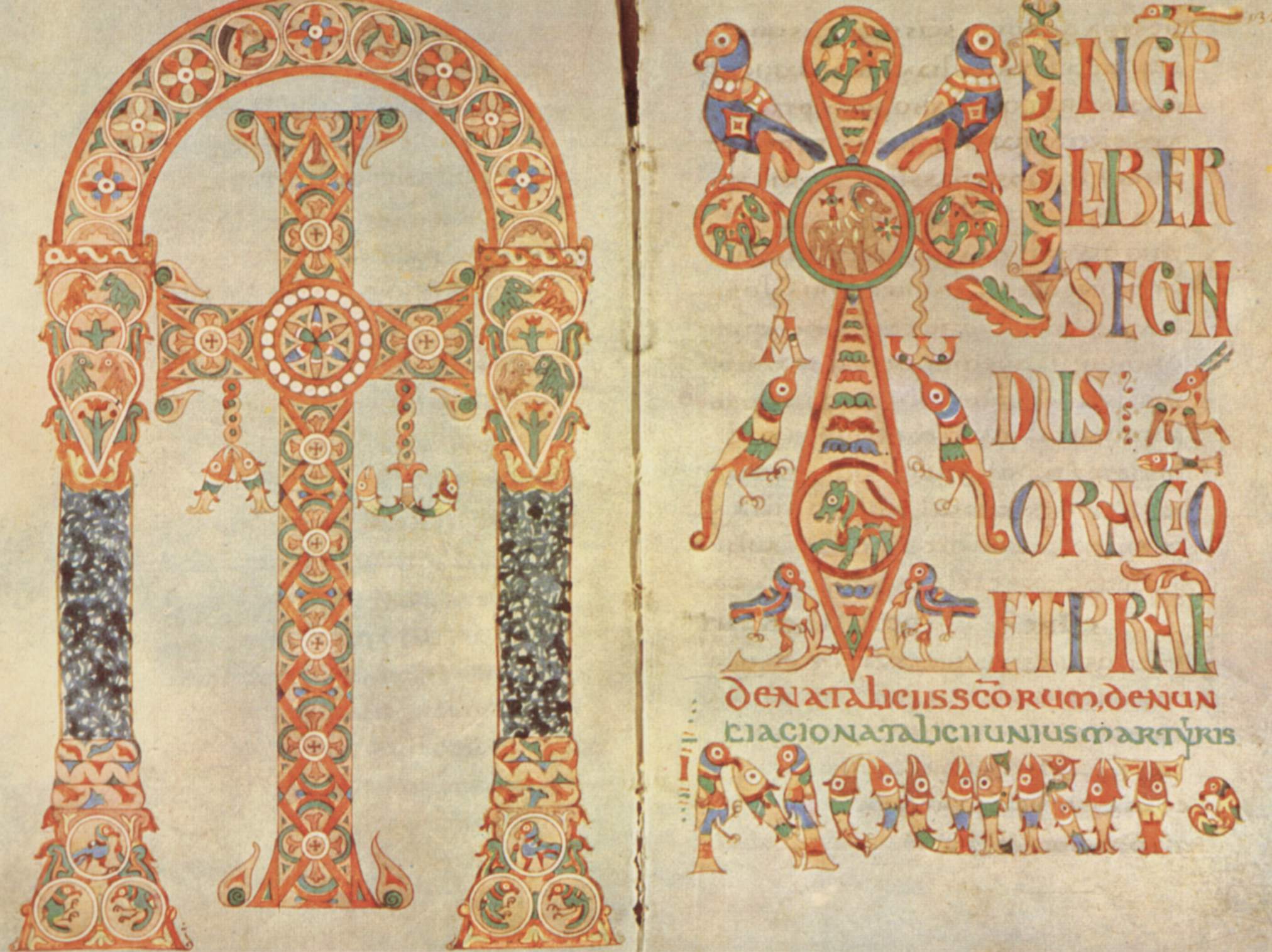|
Ekphony
Ecphonesis ( el, ἐκφώνησις) is an emotional, exclamatory phrase (exclamation) used in poetry, drama, or song. It is a rhetorical device that originated in ancient literature. A Latin example is "O tempora! O mores!" ("Oh, the times! Oh, the morals!"). A modern example is "Young man!" from the song YMCA by the Village People. Edgar Allan Poe used ecphonesis in “The Tell-Tale Heart:” "Almighty God!--no, no! They heard!--they suspected!--they knew!--they were making a mockery of my horror!--this I thought, and this I think. But anything was better than this agony! Anything was more tolerable than this derision! I could bear those hypocritical smiles no longer! I felt that I must scream or die! and now--again!--hark! louder! louder! louder! louder! "'Villains!' I shrieked, 'dissemble no more! I admit the deed!--tear up the planks! here, here!--It is the beating of his hideous heart!'"Other examples of ecphonesis include when Homer Simpson said "No! No-no-no-no-no-no! We ... [...More Info...] [...Related Items...] OR: [Wikipedia] [Google] [Baidu] |
Exclamation
An exclamation is an emphatic utterance, the articulate expression of an affect. Exclamation may also refer to: * Exclamation mark, the punctuation mark "!" * Exclamation, an emphatic interjection * Exclamation, a statement against penal interest in criminal law in United States * Exclamation, a fragrance by Coty, Inc. Coty Inc. is an American-French multinational beauty company founded in 1904 by François Coty. With its subsidiaries, it develops, manufactures, markets, and distributes fragrances, cosmetics, skin care, nail care, and both professional and re ... * Exclamative sentence, a sentence type {{disambiguation ... [...More Info...] [...Related Items...] OR: [Wikipedia] [Google] [Baidu] |
Rhetorical Device
In rhetoric, a rhetorical device, persuasive device, or stylistic device is a technique that an author or speaker uses to convey to the listener or reader a meaning with the goal of persuading them towards considering a topic from a perspective, using language designed to encourage or provoke an emotional display of a given perspective or action. Rhetorical devices evoke an emotional response in the audience through use of language, but that is not their primary purpose. Rather, by doing so, they seek to make a position or argument more compelling than it would otherwise be. Modes of persuasion Originating from Aristotle's ''Rhetoric'', the four modes of persuasion in an argument are as follows: ;Logos : is an appeal to logic using intellectual reasoning and argument structure such as giving claims, sound reasons for them, and supporting evidence.Selzer, J. (2004). Rhetorical Analysis: Understanding How Texts Persuade Readers. In C. Bazerman & P. Prior (Eds.), ''What Writing Do ... [...More Info...] [...Related Items...] OR: [Wikipedia] [Google] [Baidu] |
O Tempora O Mores!
is a Latin phrase that translates literally as "Oh the times! Oh the customs!", first recorded to have been spoken by Cicero. A more natural, yet still quite literal, translation is "Oh what times! Oh what customs!"; a common idiomatic rendering in English is "Shame on this age and on its lost principles!", originated by the classicist Charles Duke Yonge. The original Latin phrase is often printed as , with the addition of exclamation marks, which would not have been used in the Latin written in Cicero's day. The phrase was used by the Roman orator Cicero in four different speeches, of which the earliest was his speech against Verres in 70 BC. The most famous instance, however, is in the second paragraph of his First Oration against Catiline, a speech made in 63 BC, when Cicero was consul (Roman head of state), denouncing his political enemy Catiline. In this passage, Cicero uses it as an expression of his disgust, to deplore the sorry condition of the Roman Republic, in which ... [...More Info...] [...Related Items...] OR: [Wikipedia] [Google] [Baidu] |
Village People
Village People is an American disco group known for its on-stage costumes and suggestive lyrics in their music. The group was originally formed by French producers Jacques Morali, Henri Belolo and lead singer Victor Willis following the release of the debut album ''Village People'', which targeted disco's large gay audience. The group's name refers to Manhattan's Greenwich Village, with its reputation as a gay neighborhood. The characters were a symbolic group of American masculinity and macho gay-fantasy personas. As of 2022, Victor Willis is the only original member of the group. The group quickly became popular and moved into the mainstream, scoring several disco and dance hits internationally, including the hit singles " Macho Man", "In the Navy", " Go West", and "Y.M.C.A.", which was their biggest hit. In March 2020, the Library of Congress described "Y.M.C.A." as "an American phenomenon", and added the song to the National Recording Registry, which preserves audio recordin ... [...More Info...] [...Related Items...] OR: [Wikipedia] [Google] [Baidu] |
Edgar Allan Poe
Edgar Allan Poe (; Edgar Poe; January 19, 1809 – October 7, 1849) was an American writer, poet, editor, and literary critic. Poe is best known for his poetry and short stories, particularly his tales of mystery and the macabre. He is widely regarded as a central figure of Romanticism in the United States, and of American literature. Poe was one of the country's earliest practitioners of the short story, and considered to be the inventor of the detective fiction genre, as well as a significant contributor to the emerging genre of science fiction. Poe is the first well-known American writer to earn a living through writing alone, resulting in a financially difficult life and career. Poe was born in Boston, the second child of actors David and Elizabeth "Eliza" Poe. His father abandoned the family in 1810, and when his mother died the following year, Poe was taken in by John and Frances Allan of Richmond, Virginia. They never formally adopted him, but he was with them well ... [...More Info...] [...Related Items...] OR: [Wikipedia] [Google] [Baidu] |
The Tell-Tale Heart
"The Tell-Tale Heart" is a short story by American writer Edgar Allan Poe, first published in 1843. It is related by an unnamed narrator who endeavors to convince the reader of the narrator's sanity while simultaneously describing a murder the narrator committed. The victim was an old man with a filmy pale blue "vulture-eye", as the narrator calls it. The narrator emphasizes the careful calculation of the murder, attempting the perfect crime, complete with dismembering the body in the bathtub and hiding it under the floorboards. Ultimately, the narrator's actions result in hearing a thumping sound, which the narrator interprets as the dead man's beating heart. The story was first published in James Russell Lowell's ''The Pioneer'' in January 1843. "The Tell-Tale Heart" is often considered a classic of the Gothic fiction genre and is one of Poe's best known short stories. The specific motivation for murder (aside from the narrator's hatred of the old man's eye), the relationship ... [...More Info...] [...Related Items...] OR: [Wikipedia] [Google] [Baidu] |
IMDb
IMDb (an abbreviation of Internet Movie Database) is an online database of information related to films, television series, home videos, video games, and streaming content online – including cast, production crew and personal biographies, plot summaries, trivia, ratings, and fan and critical reviews. IMDb began as a fan-operated movie database on the Usenet group "rec.arts.movies" in 1990, and moved to the Web in 1993. It is now owned and operated by IMDb.com, Inc., a subsidiary of Amazon. the database contained some million titles (including television episodes) and million person records. Additionally, the site had 83 million registered users. The site's message boards were disabled in February 2017. Features The title and talent ''pages'' of IMDb are accessible to all users, but only registered and logged-in users can submit new material and suggest edits to existing entries. Most of the site's data has been provided by these volunteers. Registered users with a prov ... [...More Info...] [...Related Items...] OR: [Wikipedia] [Google] [Baidu] |
Donald Trump
Donald John Trump (born June 14, 1946) is an American politician, media personality, and businessman who served as the 45th president of the United States from 2017 to 2021. Trump graduated from the Wharton School of the University of Pennsylvania with a bachelor's degree in 1968. He became president of his father's real estate business in 1971 and renamed it The Trump Organization. He expanded the company's operations to building and renovating skyscrapers, hotels, casinos, and golf courses. He later started side ventures, mostly by licensing his name. From 2004 to 2015, he co-produced and hosted the reality television series ''The Apprentice (American TV series), The Apprentice''. Trump and his businesses have been involved in more than 4,000 state and federal legal actions, including six bankruptcies. Trump's political positions have been described as populist, protectionist, isolationist, and nationalist. He won the 2016 United States presidential election as the Repu ... [...More Info...] [...Related Items...] OR: [Wikipedia] [Google] [Baidu] |
Eastern Orthodox Church
The Eastern Orthodox Church, also called the Orthodox Church, is the second-largest Christian church, with approximately 220 million baptized members. It operates as a communion of autocephalous churches, each governed by its bishops via local synods. The church has no central doctrinal or governmental authority analogous to the head of the Roman Catholic Church—the Pope—but the Ecumenical Patriarch of Constantinople is recognized by them as '' primus inter pares'' ("first among equals"), which may be explained as a representative of the church. As one of the oldest surviving religious institutions in the world, the Eastern Orthodox Church has played a prominent role in the history and culture of Eastern and Southeastern Europe. The Eastern Orthodox Church officially calls itself the Orthodox Catholic Church. Eastern Orthodox theology is based on holy tradition, which incorporates the dogmatic decrees of the seven ecumenical councils, the Scriptures, and the teachin ... [...More Info...] [...Related Items...] OR: [Wikipedia] [Google] [Baidu] |
Symeon Of Thessaloniki
Saint Symeon of Thessalonica (c. 1381–1429) was a monk, bishop and theologian in Greece. Biography Symeon was born in Constantinople, most likely between 1381 and 1387. He became a monk in one of the monasteries there, possibly the Xanthopouloi monastery. He was archbishop of Thessalonica from 1416 or 1417, until his death in 1429. His consecration took place in Constantinople, in accordance with the established practice for hierarchs who belonged to the Patriarchate of Constantinople. The city of Thessalonica was surrounded by Ottoman forces when he arrived as archbishop in 1416-17. He slipped quietly out of the city in June 1422 to go to Constantinople and persuade the emperor to send more forces to protect the city. He got only as far at Mount Athos, narrowly escaping capture by the Ottoman forces beginning their siege. On Mt. Athos he was convinced to return to Thessalonica. From this point onward, he presided over the city at a particularly difficult time with the city und ... [...More Info...] [...Related Items...] OR: [Wikipedia] [Google] [Baidu] |
Ectenia
An ektenia (from el, ἐκτενής , translit=ektenés; literally, "diligence"), often called by the better known English word litany, consists of a series of petitions occurring in the Eastern Orthodox and Byzantine Catholic liturgies. The prevalent ecclesiastical word for this kind of litany in Greek is συναπτή ''synaptê'', while ''ektenia'' is the word preferred in Church Slavonic (ектенїѧ ''ekteniya''). A litany is normally intoned by a deacon, with the choir or people chanting the responses. As he concludes each petition, the deacon raises the end of his orarion and crosses himself; if there is no deacon serving, the petitions are intoned by a priest. During many litanies the priest says a prayer silently; when no deacon is serving, the response to the last petition is typically prolonged to give the priest time to finish the prayer. after the last petition of the litany, the priest says an ecphonesis which, when a silent prayer is said during the litany, ... [...More Info...] [...Related Items...] OR: [Wikipedia] [Google] [Baidu] |
Anaphora (liturgy)
The Anaphora is the most solemn part of the Divine Liturgy, or the Holy Sacrifice of the Mass, a thanksgiving prayer by virtue of which the offerings of bread and wine are believed to be consecrated as the body and blood of Christ. This is the usual name for this part of the Liturgy in Greek-speaking Eastern Christianity. In the Eastern Syriac tradition ''Qudaša'' is its equivalent. The corresponding part in western Christian liturgy is nowadays most often called the Eucharistic Prayer. The Roman Rite from the 4th century until after Vatican II had a single such prayer, called the Canon of the Mass. "Anaphora" is a Greek word () meaning a "carrying up" (as distinguished from the use of the same word, then meaning a "carrying back", in rhetoric and linguistics), and so an "offering" (hence its use in reference to the offering of sacrifice to God). In the sacrificial language of the Greek version of the Old Testament known as the Septuagint, (prospherein) is used of the offerer's ... [...More Info...] [...Related Items...] OR: [Wikipedia] [Google] [Baidu] |








